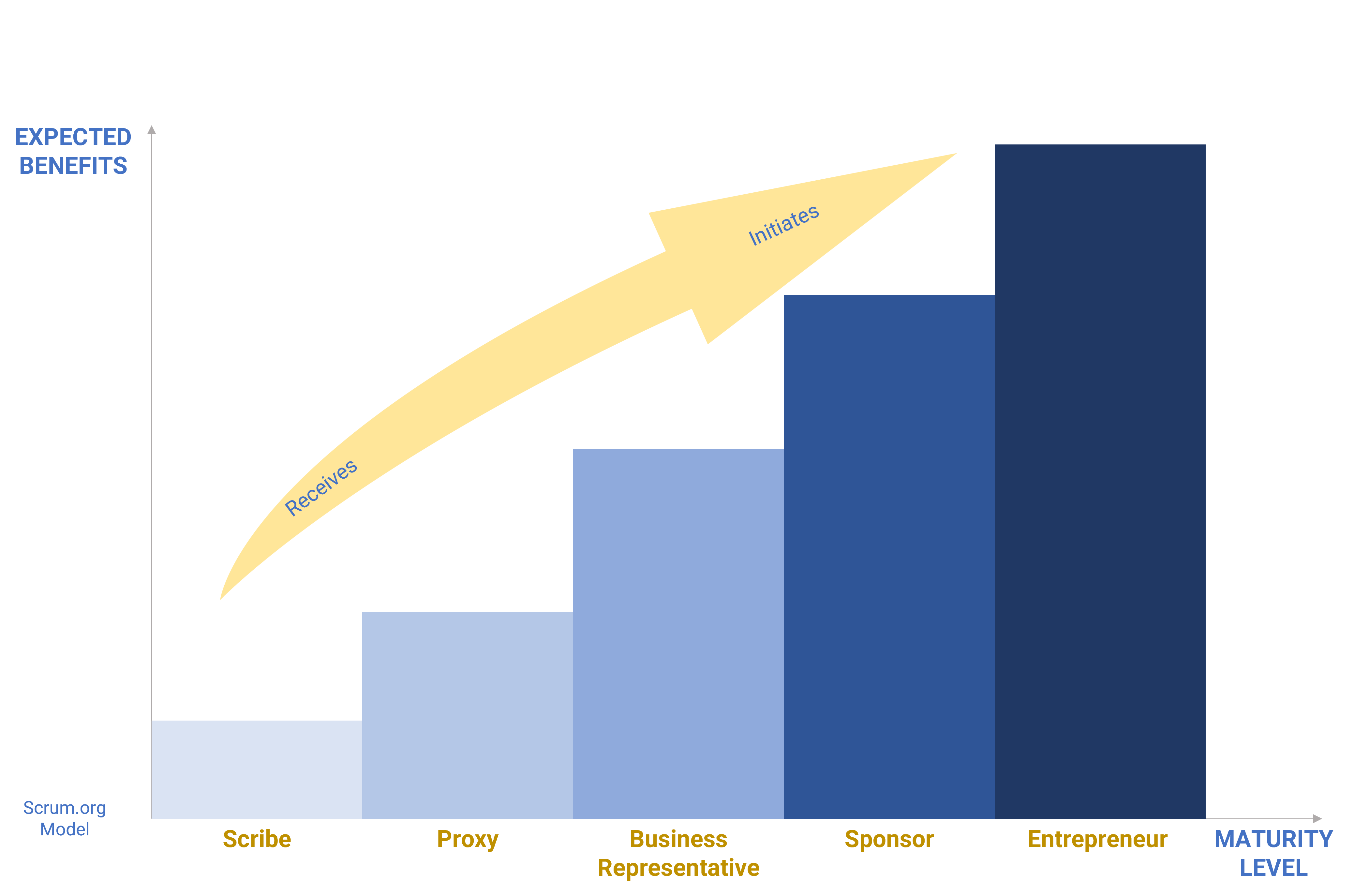Product Owner Maturity Journey

Unlocking the Potential: Empowering POs to Evolve from Task Masters to Strategic Business Drivers
Our Product Owner Maturity Journey workshops are typically scheduled for small groups within the same company as a series of 2-hour online sessions with a workshop leader who has an extensive agile product development leadership background. Individual modules can be arranged for groups that don’t need the entire curriculum. In-person sessions can be scheduled for up to 25 participants, ranging from one-to-three days depending on content.
The objective of this comprehensive 10-module training series is to elevate the proficiency of product owners by instilling a deep understanding of agile principles and methodologies while progressively advancing their skills to advanced levels. Through a structured curriculum encompassing foundational concepts like user story writing and stakeholder management, to advanced topics such as release planning and scaling agile practices, the series aims to equip product owners with the knowledge, tools, and techniques necessary to effectively drive product development, prioritize features based on business value, and foster collaboration across multidisciplinary teams.
Two key factors make this approach to training unique and valuable:
- The context considers the full spectrum of product development situations, focused mainly on the development of hardware-based products and systems.
- It’s based on advancing through the 5-level Product Owner Maturity Model: Scribe > Proxy > Business Representative > Sponsor > Entrepreneur.
Ultimately, the training seeks to empower product owners to lead successful product initiatives in complex and dynamic environments. At the end of the journey, participants will be prepared to take PSPO-1 and PSPO-2 certification via scrum.org.
Module 1: Introduction to Product Ownership
- Understanding the role and responsibilities of a Product Owner
- Differentiating between product owner and other agile roles
- Overview of agile principles and methodologies
- Understanding of VUCA (Volatility, Uncertainty, Complexity, Ambiguity) environment
- Cynefin Framework and Stacey Matrix
- Product mindset and difference between product and project mindset
- Cone of Uncertainty concept
Module 2: User Story Writing Basics
- Fundamentals of user stories and their importance in agile development
- INVEST criteria (Independent, Negotiable, Valuable, Estimable, Small, Testable)
- Acceptance Criteria, Definition of Done and Definition of Ready
- Estimation methods
- Prioritizing user stories based on business value and urgency
Module 3: Product Backlog Management
- Understanding the product backlog and its role in agile development
- Product backlog vs. task/work item backlog
- Techniques for grooming and refining the product backlog
- Prioritization methods such as MoSCoW, Value vs. Effort, and Weighted Shortest Job First (WSJF)
Module 4: Advanced User Story Techniques
- Splitting techniques for better manageability and delivery
- Introduction of Technical Debt concept
- Handling non-functional requirements and technical debt within user stories
Module 5: Stakeholder Management
- Identifying and categorizing stakeholders via using stakeholder mapping approach
- Techniques for effective stakeholder communication and collaboration
- Gathering and managing stakeholder feedback to inform product decisions
- Understanding of “Giving and Getting” feedback techniques
Module 6: Product Vision and Roadmap Crafting
- Crafting a compelling product vision statement via Roman Pichler Framework
- Creating and maintaining a product roadmap to align with the vision
- Introduction of OKR approach
- Understanding of “unbroken why chain” framework (Company Vision & Mission, Product Vision, Product Objective & Key Result)
- Balancing short-term goals with long-term vision through iterative planning
Module 7: Metrics and Measurement
- Identifying Key Performance Indicators (KPIs) for product success
- Techniques for tracking and analyzing product metrics
- Using data-driven insights to make informed product decisions
Module 8: Fit for Purpose Framework
- Characteristics of different product stages (Novel, Custom Built, Product/ Rental, Commodity)
- Full Product Lifecycle
- Ways of working through the product lifecycle
Module 9: Product Ownership in Complex Environments
- Introduction to Scaling Frameworks
- Scaling agile practices for large or distributed teams
- Managing dependencies and coordinating across multiple product teams
- Addressing challenges in agile adoption within organizations
Module 10: Continuous Improvement and Adaptation
- Cultivating a culture of continuous improvement within the product team
- Applying retrospective techniques to reflect on and adapt product development processes
- Leveraging feedback loops to iterate and evolve the product over time
Let’s Make Things Happen
Contact us today for a complimentary consultation to discuss your group’s product owner advancement objectives.

